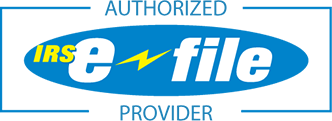

Even if you own your own vehicle, you can’t just call it a trucking business and begin hauling freight. In order to legally get paid for your trucking endeavors, you have to have operating authority: government permission to work for hire in interstate commerce. Owner operator authority is granted as a Motor Carrier (MC) number, a unique identifier assigned by the Federal Motor Carrier Safety Administration (FMCSA), and once you have one, how you go about your business is entirely up to you (within the parameters of the law, of course).
Most commercial truck drivers that work independently will need operating authority in order to conduct business, including those who:
However, there are a number of driver categories that don’t require operating authority. These include:
When operating under your own authority, you are your own boss, so you determine just about everything. You can work when you want, for as long as you want to, giving you the ability to take time off for special occasions or to be with family. And that’s not all. You also get to choose your own loads and runs, allowing you to control where you travel and how much money you can make.
Speaking of making money, with owner operator authority, you have the potential to see a significant increase in your income. You can seek out and accept higher-paying jobs, negotiate better rates with brokers, hire additional drivers, and even find a higher paying niche such as moving to increase your earnings. The best part is, once you’ve paid off all of your expenses, anything leftover is yours to keep.
When you’re operating under your own authority, you are simultaneously the company’s CEO, dispatcher, safety and compliance officer, accountant, HR director, and maintenance manager. Let’s just say, running your own trucking company, while rewarding, takes a lot of hard work. One of the biggest challenges? Finding your own freight. To do this, you’ll have to use load boards, build relationships with shippers, or pay for a freight broker to find work for you.
Operating under your own authority comes with its fair share of expenses as well. With your own owner operator authority, you have to pay for licensing, maintenance, safety inspections, taxes and fees, insurance, and fuel on your own. You can lessen these expenses by building a relationship with repair shops, fuel stations, etc., but doing so, once again, takes a lot of work.
As the owner of a trucking business, you have to wear many hats, and you’ll be doing a good amount of work in the back office. So, it might be best to wait until you have some extra time before transitioning to your own owner operator authority.
Companies can sometimes be unfair to truck drivers, so make sure you have enough money saved to buy or lease a truck on your own. This will help prevent you from getting into a sticky financial situation.
Running a business is no easy feat, so take some time to learn the ins and outs of the trucking industry from the company you work for before making the switch. This could include driving experience in different terrains and weather, how to reduce costs, how to keep logbooks, best practices for drivers, etc.
Depending on what kind of cargo you plan on carrying, you might need a different type of authority. If you carry multiple types of cargo, you might even need multiple authorities. Also, check each state where you plan to operate. Many states have additional requirements for motor carriers.
Once you’ve determined what type of authority you need, the next step is to choose a business name and structure. (Many independent trucking companies are sole proprietors or LLCs.)
You’ll also need an employer identification number (EIN), which you can apply for with the IRS. This will allow you to pay taxes, apply for business licenses, hire employees, and open a bank account for your company.
You won’t receive an MC number without having an insurance policy in place, and it would be a shame to go through the entire process just to be rejected at the end.
A USDOT (United States Department of Transportation) number is a carrier identification number required for commercial vehicles that conduct intrastate or interstate commerce. To register for a free USDOT number, complete the application on the FMCSA website.
In addition to applying for a USDOT number, you’ll need to apply for owner operator authority (MC Number) with the FMCSA and pay the $300 fee per authority. You can apply online or by mailing your paperwork, but be warned, if you choose to file by mail the process will take longer.
A Unified Carrier Registration (UCR) permit is an annual registration program for those who operate in interstate commerce. The fee, which is based on fleet size, supplements funding for state highway motor carrier registration and safety programs.
Before your truck can hit the road, you have to pay the Heavy Vehicle Use Tax (HVUT). This is an annual tax on vehicles with a taxable gross weight of 55,000 pounds or more that operate on public roads, and it’s due on Aug 31 each year. Some states also charge additional highway use taxes.
If you plan on crossing state lines, you’ll need to register with the International Registration Plan (IRP) and create an International Fuel Tax Agreement (IFTA) account. Registering with the IRP will grant you apportioned plates, allowing you to travel through multiple jurisdictions, while the IFTA simplifies your fuel tax payments. Both IRP fees and fuel tax payments are based on the distance driven in each jurisdiction. If you will only operate in a single state, you can register your vehicle with the state registration authority for commercial vehicles instead of IRP.
The FMCSA and USDOT require truck drivers to pass a drug test before hiring others or driving themselves, so the last step in getting your own owner operator authority is to enroll with a drug and alcohol testing center.
In order for heavy vehicles to legally drive on public roads (which is essential for a trucking company), they need to first file Form 2290 and pay the HVUT. With i2290, doing so is easy. All you have to do is create an account, enter in some information about your trucks and your business, and our software will automatically calculate your taxes for you. The entire process takes only a few minutes, and once you submit your return, you’ll receive a stamped Schedule 1 almost instantly.
Are you ready for a better way to pay the HVUT? Create an account with i2290 today!
Special note: This article is for general purposes, and is not intended to provide, and should not be relied on for tax, legal, investment, or accounting advice. The best way to ensure you’re properly attaining operating authority and paying appropriate taxes is by following IRS regulations and consulting with a professional.
We're confident that your experience with INSTANT 2290 will be the best Form 2290 e-filing you've ever had. If for any reason you are not satisfied, just contact support for a full refund. No questions. No conditions. Create your account to get started!